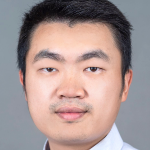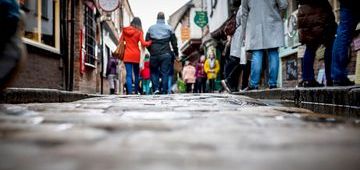This month we feature Dr. Shaoshan Liu, a biomedical engineer with an interest in autonomous vehicles, robotics and artificial intelligence systems.

Can you tell us what your role is and where you work?
I am a technology entrepreneur focusing on developing robotics and artificial intelligence (AI) systems. My ultimate career goal is to improve human society through technological advancements. I am currently working in a technology start-up to develop autonomous driving and AI technologies. My current project focuses on developing Autonomous Mobile Clinics to empower affordable anywhere anytime healthcare access, to allow a mobile clinic to come to your doorstep.
What is your favourite part of your role?
My favourite part of my job is to see the technologies that I have developed could actually help people and make our society more efficient. For instance, we have developed autonomous driving technologies which could provide mobility services for the disadvantageous groups. One example is our work in Hamamatsu, a Japanese town with many elderly people who suffered from a lack of public transit services. In a study, our autonomous vehicles provided the transit services for them to go to supermarkets and visit their doctors.
Can you give us an overview of your career path?
I received a M.S. degree in Biomedical Engineering in 2006, and a Ph.D. in Computer Engineering in 2010, both from U.C. Irvine. After spending a decade developing advanced robotics and AI technologies, I went back to academia and received a Master of Public Administration (MPA) degree from Harvard University, with a focus on technology policies. I am also the founder of the Institute of Electrical and Electronics Engineers (IEEE) Special Technical Community on Autonomous Driving Technologies, an IEEE Senior Member, an IEEE Distinguished Speaker, an ACM Distinguished Speaker and a Fellow of the Royal Society for Public Health.
In your role, how do you support/improve the public’s health and wellbeing?
Healthcare access is a critical challenge faced by the disadvantageous groups, such as the elderly and the disabled population, around the globe today. Mobility is one constraining factor for healthcare access, but one that I believe can be addressed by technological innovation.
What area(s) of public health are you the most passionate about?
Universal healthcare access and equity are the areas that I am most passionate about. Healthcare is arguably the most fundamental human right. What matters more to one besides health? Health is like oxygen; you take it for granted, you don’t feel its existence until the day you lose it, then you will do whatever it takes to get it back. One of my career missions is to improve healthcare access and equity through technological innovations.
How did you find out about the RSPH and what do you enjoy most about your membership?
I got to known RSPH through collaboration with a few leading medical practitioners and researchers, who are also RSPH fellows. RSPH provides a perfect platform for researchers, practitioners, and policy makers from a very diverse background to discuss public health topics and to propose innovative ideas and policies to improve public health. For me, I find great inspirations from the RSPH blogs as well as member spotlights. Coming from the technology and public policy background myself, I will continue sharing my ideas and the progress of my public health projects through the RSPH platform.
What do you do to take care of your own health and wellbeing?
I have trained as a biomedical engineer and hence, I keep track of own health closely with technologies, such as using wearable devices to monitor my health status, performing a thorough health check each year and reading avidly on health-related topics to guide myself to a healthier life.



